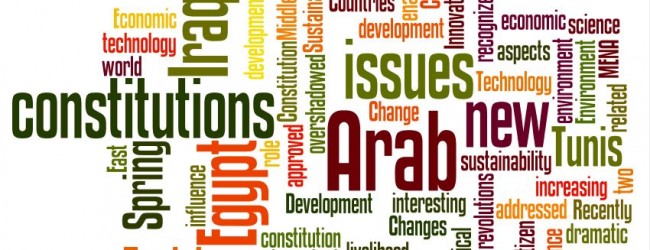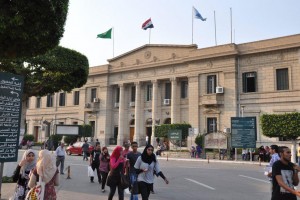
By Michael Bond
Egypt’s revolution has presented a big opportunity to revive the country’s STI system and put research and innovation at the forefront of economic and technological development. Overturning three decades of neglect, will take time and commitment, and turning the tide will require substantial change at many levels – in schools, in the private sector, in universities and research centres, and in cultural and political attitudes.
Here, we summarise the main strengths and weaknesses of Egypt’s STI system, as uncovered by our analysis, and make some recommendations for change, that could help accelerate the country’s transition to a knowledge-based economy.
Strengths
Human capital
Egypt has a large pool of researchers and science students and technicians that harbour great talent, as well as a powerful and active diaspora.
Egypt plays a critical linking role in research in the Middle East and North Africa region. Egyptian researchers co-author on average, 10 papers a year with collaborators in UAE, Kuwait, Lebanon, Qatar, Jordan, Oman and Libya. Further afield, new collaborative initiatives have led to significant research partnerships with Germany, Italy, France and Japan.
Foreign investment
The UN Conference on Trade and Development’s World Investment Report 2010, ranked Egypt first among North African countries in its ability to attract foreign direct investment, and in the Middle East its FDI is greater than all except Saudi Arabia’s, Turkey’s and Qatar’s.
Information and communication technology (ICT)
The number of ICT companies in Egypt is increasing at a rate of around 13.5% per year, that has ended up attracting a host of foreign companies, including Microsoft, Ericsson, Vodafone, Intel and IBM. Spending in this sector is expected to increase from $1.4 billion in 2010 to $2.6 billion by 2014, making it one of the fastest growing IT economies in the world.
Mathematics
 This is another strength area on a global scale. Egypt exceeds the world average in citation impact for mathematics papers: an example of this is, that for the first time, a university in Egypt, Alexandria university, came 147th in the Times’ Higher Education World universities, owing to its quality of its research in mathematics and theoretical physics.
This is another strength area on a global scale. Egypt exceeds the world average in citation impact for mathematics papers: an example of this is, that for the first time, a university in Egypt, Alexandria university, came 147th in the Times’ Higher Education World universities, owing to its quality of its research in mathematics and theoretical physics.
Natural resources
Being blessed with the natural resources of constant wind along the Red Sea, and its ideal geography that is harbouring it as a prime site for the production of solar energy, Egypt is a gold mine of natural resources.
Weaknesses
Lack of research funding
Lack of money for research, and the scant pay of researchers, has been a constant struggle for scientists across Egypt. The various competitive grant initiatives introduced in 2007 have helped, and recently, the government introduced several new proposals to increase funding and salaries. Raising the proportion of GDP spent on R&D from the current level of 0.4% to the 1% suggested by the Organisation of the Islamic Cooperation, or the 2% suggested by the Egyptian Academy of Scientific Research and Technology, will be critical for the country’s economic development.
The education system is letting students down
Egypt’s rapid population growth has proved an enormous challenge for its education system. One of the commonest criticisms of school education is the standard of teaching, especially in the sciences. Students who study science are not taught to think like scientists – to question orthodoxy, to analyse critically. Instead, memorisation and rote learning dominate. All this could have serious implications for Egypt’s future, since the degree to which a country’s education system encourages critical thinking, in part, dictates its economic development.
Graduates need more business skills
One often-cited criticism of universities in Egypt is that they do not properly prepare their undergraduates for the jobs market. 41% of employers consider their young recruits poor at applying knowledge they acquired at school or university to the job in hand, according to a survey by the International Labour Organization. Another report found that education in entrepreneurship skills – such as understanding how ideas in the lab can translate into market opportunities – is among the worst anywhere.
Private enterprise has little faith in R&D as a business model
Out of Egypt’s total investment in R&D, just 5% comes from non-governmental sources. This is among the lowest contributions anywhere. A major reason appears to be a lack of trust and understanding between academia and industry, that makes it almost impossible for them to serve each other’s needs. Furthermore, too much university research is not geared to the needs of the community.
There is little public appetite for science
Public interest in science in general in Egypt, appears to be low. The proportion of pupils majoring in science subjects in secondary school, has more than halved over the last four decades. Furthermore, people do not generally see science as playing a pivotal role in development or in improving their livelihoods. This makes it harder for government to justify spending large amounts of public money on research.
The rigid academic culture holds back creativity and innovation
Egypt’s higher education regulations make it difficult for academics to move between universities. This ensures a deeply hierarchical system in which it is difficult for younger people to question their superiors, and in which promotion is determined largely by seniority rather than, say, success at obtaining patents. The deleterious effects of this and other aspects of the rigid academic culture are apparent in the lack of cross-fertilisation not only between universities, but also between different faculties at the same university. Furthermore, women are significantly underrepresented in the scientific community in Egypt, and especially in leadership positions, despite progress in recent years.
Conclusion
Despite the great potential for innovation within Egypt’s scientific community, progress is still being held back by several deep-lying institutional issues. The most visible and perhaps the most disconcerting of these – as highlighted by events in recent weeks – is the poor quality of science journalism and the lack of appreciation for science among the public in general.
When Army researchers claimed in late February, that they had invented a device, that could detect and cure AIDS and hepatitis C through the transmission of electromagnetic waves, almost every journalist who reported the story, did so, without questioning the highly suspected science, behind it. This matters. The idea that science is a crucial driver of development, needs public support, and without a credible and scientifically savvy media, there is little hope of that message getting through.
The episode illustrates another deep-set problem: the lack of a culture of critical thinking and analysis, a problem that is highlighted several times in the Atlas report. There is no shortage of enlightened people within Egypt’s academic and educational establishment, who are trying to change such attitudes and steer the country towards a modern innovation-led economy. But they will never succeed without greater public support, and public support is unlikely to grow, without a scientifically literate media.
The writer is a Consultant for New Scientist, London and Lead Researcher for the report.
References:
‘Science and innovation in Egypt’-Atlas Report (full text) Available at http://www.aiwsi.org/imgs/news/image/atlas-country-case-egypt.pdf
You must be logged in to post a comment.